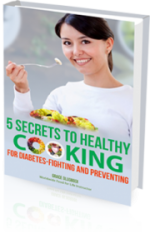Top 12 Healthy Diet and Healthy Eating Tips
Following a healthy diet and healthy eating programme is probably the single most important thing you can do for your health and wellbeing.
Following are the best tips to getting it right or improving your programme.
1. Eat whole Grains
Eat the whole grain and unprocessed versions of foods. For rice and bread for example, eat brown rice and brown bread. The non-processed version is always better than the processed version and of course has more nutrients.
2. Buy Whole Veggies
Buy vegetables whole instead of already cut and packed vegetables. The sliced version would be losing lots of important nutrients by the time you buy it, because of oxidation.

The vegetables would have lost even more nutrients by the time you are ready to consume it, even if it’s within the hour. Air and light would have come in contact with it and will be close to going off. Unless you just want to be eating chaff that “looks nice”. We eat with our eyes but digest with our stomachs indeed!
3. Avoid Fried Foods
Find alternatives for fried foods. What could ordinarily be cooked in a healthy and nutrient-packed way could be turned into a meal or dish that contains so much fat.
Stay away from already-fried snacks, such as French fries and crisps. You have no idea how much oil they would have absorbed during preparation.
4. Salad Dressings
Try to use salad dressings that are not fortified with fat. Eat sea-caught or wild fish. Fish is a good source of omega-3 fats, which are good fats essential for brain development. Mackerel and salmon are great natural sauces of fish oil.
5. Fizzy Drinks
Avoid fizzy drinks, sugary drinks and sugary fruit juices. Excess sugar in the body is not a good idea at all. It will only contribute to increasing your blood sugar, which is a diabetes risk factor.
Most fruit juices are little more than sugar and water. An easy way to get rid of them from your diet and children’s diets is to start by diluting them (adding half a portion of water).
6. Plenty of Water
Drink plenty of water. Water is necessary for proper and efficient functioning of your body. You should drink six to eight glasses a day in fluids.
7. Inspect Snack Foods
Avoid fatty snack foods, even if they’re not fried. This is common sense, so as to reduce fat in your diet. Too much fat in the diet can fuel and increase the risk of a whole host of health problems, including heart disease, indigestion (digestive problems), diabetes, high blood pressure, high cholesterol, stroke and cancer.
The same sort of lifestyle that promotes heart disease is the same diet lifestyle that promotes high cholesterol and high blood pressure, and others on the list. But a healthy diet and healthy eating promotes the opposite.
8. Exercise
Don’t forget to exercise! 30 minutes to an hour of exercise about three to five times a week is the ideal. It doesn’t always have to be in the gym. It could be a home exercise DVD, it could be the Wii game exercise videos, or just walking briskly.
When I can’t get to the gym because of time or other commitments, I use exercise DVDs at home, in the comfort of our lounge. Exercise is an important one that helps to work your heart and lowers your risk of heart disease a whole lot. Always try to do some exercise at every opportunity. For example, walk briskly up the stairs, instead of taking the lift and so on.
9. Cook More at Home
Cook your meals at home and reduce on eating out and take-aways. When you eat out, you don’t know how they’ve cooked it. Take responsibility for your health and diet.
Regarding take-aways, you don’t have a clue what’s been put in them and how the foods have been prepared – hydrogenated fats, trans fats, processed foods and so on. Plus, it’s cheaper to cook and eat your meals from home anyway! So it’s a win-win situation.
10. Eat whole Grains
If you smoke, you want to seriously consider quitting smoking. We all know that smoking is bad for the lungs. Smoking greatly affects absorption levels of nutrients in food. It can seriously hamper your healthy diet and healthy eating programme.
11. Eat Calories Early
Eat calories earlier on during the day, so you have more time to burn it off. Healthy diet and healthy eating is all about not eating too many excess calories that you don’t need.
12. Fibre Intake
Increase your daily fibre intake. Fibre aids digestion and elimination. You should be eliminating one to three times a day. Anything short of that means you’re constipated.
Following a healthy diet and healthy eating programme can be summarised easily. Simply ensure your overall diet is rich in plant foods, whole foods, fibre and healthy, essential fats.
The information here is for general guidance only.
Talk to your doctor before making any changes to your diet and lifestyle.



Leave a Reply